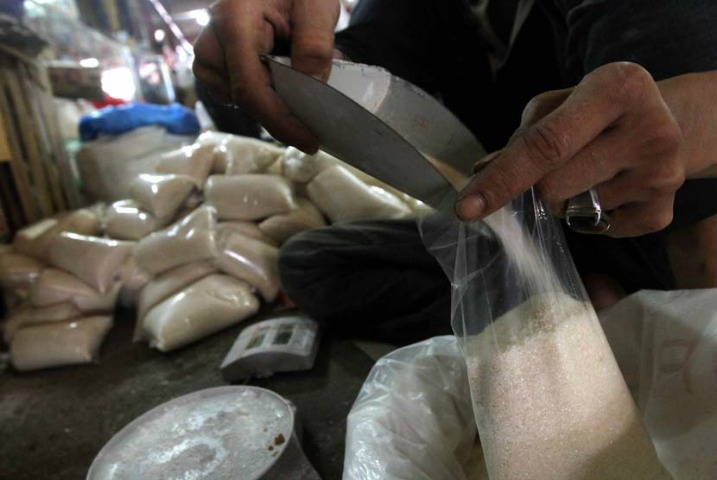The maximum limit of profit in Islam
Author: ustadz Ammi Nur Baits
Here are several fatwas explaining the rules regarding profit-taking in Islam.
Firstly, a fatwa issued by Sheikh Muhammad Ibn Shalih Al Uthaymeen.
Question: Is there any limitation of profit-taking in trading? And what is the ruling of government setting certain prices?”
His answer was,
الربح ليس له حدّ ، فإنه مِن رِزق الله عز وجل ، والله تعالى قد يسوق الرزق الكثير للإنسان ، فأحيانا يربح الإنسان في العشرة مائة أو أكثر ؛ يكون قد اشترى الشيء بِزمن فيه الرخص ثم ترتفع الأسعار فيربح كثيرا ، كما أن الأمر كذلك يكون بالعكس ، قد يشتريها في زمن الغلاء وترخص رخصًا كثيرا ، فلا حدّ للربح الذي يجوز للإنسان أن يربحه.
There is no specific limit for profit. Because it is among sustenance from Allah. Sometimes Allah pours down plenty of sustenances upon human, thus a man sometimes could obtain 100 or more with a capital of 10. He bought goods at the time when its price was very cheap, then the price soared, thus he could gain lots of profit. And sometimes it is the contrary, he bought goods when the price was expensive, and suddenly it dropped down drastically. Therefore, there is no limitation for profit that a person may take.
He continued,
نعم . لو كان هذا الإنسان هو الذي يختص بإيراد هذه السلع وتسويقها ورَبِح على الناس كثيرًا فإنه لا يَحِلّ له ذلك ؛ لأن هذا يُشبه بيع المضطر يعني البيع على المضطر ، لأن الناس إذا تعلَّقت حاجتهم بهذا الشيء ولم يكن موجودا الا عند شخص معين فإنه في حاجة للشراء منه وسوف يشتروا منه ولو زادت عليهم الأثمان ، ومثل هذا يجوز التسعير عليه ، وأن تتدخل الحكومة أو ولاة الأمر فيضربون له ربحًا مُناسبا لا يضره نقصه ، ويمنعونه من الربح الزائد الذي يَضرّ غيره
If there’s a person who monopolized goods, thus he was the only one legitimate to sell it, and he took as many profit as possible from the buyer, then this practice is not a lawful trade. Because it is similar to the bai’ al Mudhtor, which means a person sells goods to another person who really need it, Because when people are in dire need of certain goods, whereas it is only available in one person, they will surely buy it from him although the price is very high. In this case, the government can impose limitation of price, and they have right to interfere, and limit the number of profit that the person may take that is suitable for him, which is not disadvantage him and he is not allowed to obtain more profit that could disadvantage others.
(Source: Fatawa Islamiyah, 2/759).
Secondly, a fatwa issued by Prof. Dr. Sulaiman Alu Isa (A professor in King Saud University)
Question: Is there any limitation for profit-taking in Islam?
Answer:
فالجواب أنه لا مانع من زيادة السعر في سلعة ما لم تكن طعاماً فيدخل في الاحتكار المنهي عنه، لكن ينبغي ألا يخرج في زيادته عن السعر المعتاد فيدخل في الغبن الذي يكون للمشتري فيه الخيار بعد ثبوت البيع وقد حده بعض أهل العلم بالثلث؛ لقوله –صلى الله عليه وسلم- فيما رواه البخاري ومسلم:”الثلث والثلث كثير” وهذا كما أسلفت على رأي بعض أهل العلم.
The answer there’s no problem with increasing price of certain goods, as long as it is not food, hence it is a form of ihtikar (hoarding) which is forbidden. However, it shouldn’t transgress the normal price limit, thus it is considered as trickery, which results in buyer has a right to choose after the transaction took place. Some of the scholars had set up the limit of one third, based on the Prophet’s saying -peace and prayer of Allah be upon him- narrated by Bukhari and Muslim, “One third, and one third is plenty.” And this is, as I’ve mentioned before, is the opinion of some scholars.
He continued,
هذا ولا يظهر لي والعلم عند الله تعالى نسبة محددة للربح لا يجوز تجاوزها لأن الإنسان قد يشتري سلعة برخص فيبيعها بضعف ما اشتراها به أو ينتظر فيها حلول وقتها المناسب لها فيبيعها بربح كثير وقد روى البخاري (3641) وأبو داود في سننه (3384) عن عروة –رضي الله عنه- أن النبي –صلى الله عليه وسلم- أعطاه ديناراً ليشتري له به شاة فاشترى به شاتين فباع إحداهما بدينار فجاء بدينار وشاة فدعا له بالبركة في بيعه. وكان لو اشترى التراب لربح فيه. فهذا الحديث فيه أن عروة ربح الضعف، حيث باع إحدى الشاتين بدينار، وكان قد اشترى به شاتين فربح في نصف الدينار مثله، وقد أقره النبي –صلى الله عليه وسلم- على فعله ودعا له بالبركة، والله أعلم.
But in my opinion, and Allah knows best, there is no specific limitation for pricing, that shouldn’t be passed. Because sometimes a person bought certain goods with a very low price, then he sold it to get large profit. It is narrated by Bukhari (3641) dan Abu Daud in his book of Sunan (3384), from Urwah – may Allah be pleased with him- that The Prophet – peace and prayer of Allah be upon him- gave him 1 dinar to buy a goat. But Urwah used it to buy 2 goats. Then he sold one of the goats with the price of 1 dinar. Thus he came back bringing 1 goat and 1 dinar with him. The Prophet -peace and prayer of Allah be upon him- then prayed for blessing for him. Thus, even if Urwah was selling sand, he would get some profit. In this hadith, Urwah got double profits. He sold one of his goats with the price of 1 dinar, whereas he got 2 goats with only 1 dinar, hence he got a profit of one goat. And the Prophet – peace and prayer of Allah be upon him- acknowledged his act, even prayer for goodness for him.
Allah knows best.
(Source: Fatawa wa Istisyarat Mauqi’ Islam al-Yaum, 3/2/1424 هـ).
Conclusion of fatwas:
Profit is among the sustenance that Allah gives, thus Islam doesn’t limit the profit-taking in trading.
It is allowed to take double-fold profits, as in the hadith of Urwah, as long as it fulfills the requirements.
The requirements to take large profit are:
– The goods is not the staple need of people.
– The profit is not far above the reasonable one thus it is considered as trickery.
– The profit is not a result of hoarding, which caused the scarcity of the goods thus increasing its price.
Consumer who buys goods that is too expensive it is considered as trickery has the right to choose or “khiyar ghabn” (choosing because of the very-unlikely price).




